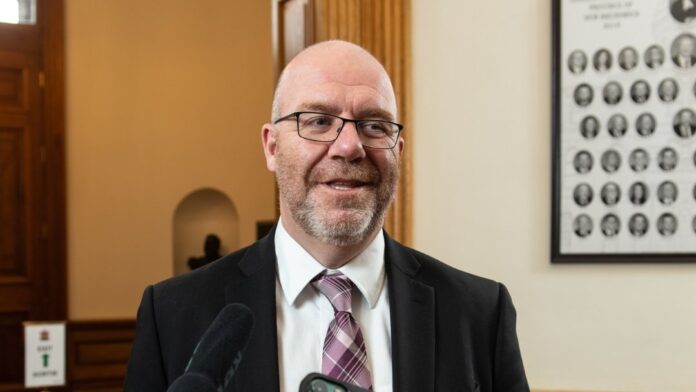
The Holt Liberal government has unveiled its first provincial budget, projecting a $549-million deficit for the 2025-2026 fiscal year.
Presented by Finance Minister René Legacy, the budget outlines significant investments in key sectors, particularly in health care, education and economic resilience.
The spending plan has drawn criticism, as it directly contradicts Premier Susan Holt’s campaign promise to maintain balanced budgets throughout her mandate.
It projects continued deficits throughout the government’s four-year term, with no immediate plans for a return to balanced budgets.
While the spending increase is lower than in previous years under the Progressive Conservatives, the incumbent government has prioritized social investment over fiscal restraint.
Key allocations include $30 million for health care improvements, particularly in collaborative care clinics, $75 million to help businesses cope with tariffs from the United States, with only $25 million of that being new funding.
The plan outlined a return to an accumulated debt of $14.3 billion by 2026-2027, reversing debt reductions made by the previous Higgs Conservative government.
Despite these planned expenditures, the Holt government insists that its approach prioritizes the needs of New Brunswickers over strict fiscal responsibility.
One of the most significant areas of investment in this year’s budget is youth and education.
The government has committed substantial funding to improve classroom learning environments, enhance support for students with exceptional needs and expand access to affordable child care.
To stabilize classrooms and provide necessary support to educators, the government has allocated an additional $32.4 million for educational assistants and behavioral intervention mentors.
This funding aims to address growing concerns over student behavioral issues and the demand for specialized classroom support.
Other notable investments in education include: $19 million for a school lunch program that will prioritize local food sources; $10 million to ensure children and youth with exceptional needs and trauma receive consistent, high-quality support and $8.7 million for early detection and intervention programs.
Progressive Conservative Leader Glen Savoie criticized the government’s financial projections, citing past errors in Liberal fiscal calculations and questioning the credibility of their deficit estimates.
“This is a group that couldn’t get their calculations right during the campaign, so how can we be sure that the calculations they have in place now are going to be accurate?” Savoie told reporters in reaction to the budget.
Green Leader David Coon expressed mixed feelings about the budget.
While he praised increased funding for tackling domestic violence and developing a provincial dementia strategy, he argued that the government’s investment in education and health care still fell short of what was needed.
Specifically, he pointed out that the $30 million allocated for collaborative care clinics is significantly less than what medical professionals have recommended.
Legacy defended the spending decision, stating that the government could no longer afford to prioritize balanced budgets over essential services.
“For too long, [the] government’s singular focus has been on balanced budgets and debt reduction, which has served to the detriment of the needs of New Brunswickers,” Legacy said. “Fiscal responsibility can and should be measured in more ways than just the bottom line.”
Despite the criticism, the Holt Liberals remain committed to their vision of increasing social investments while managing fiscal challenges.
